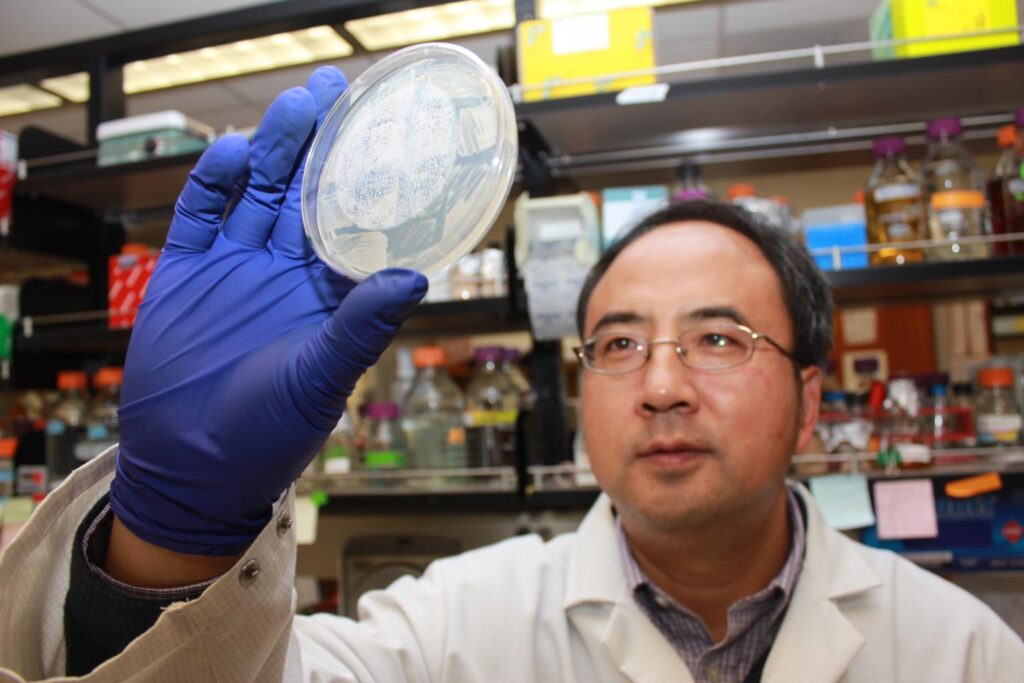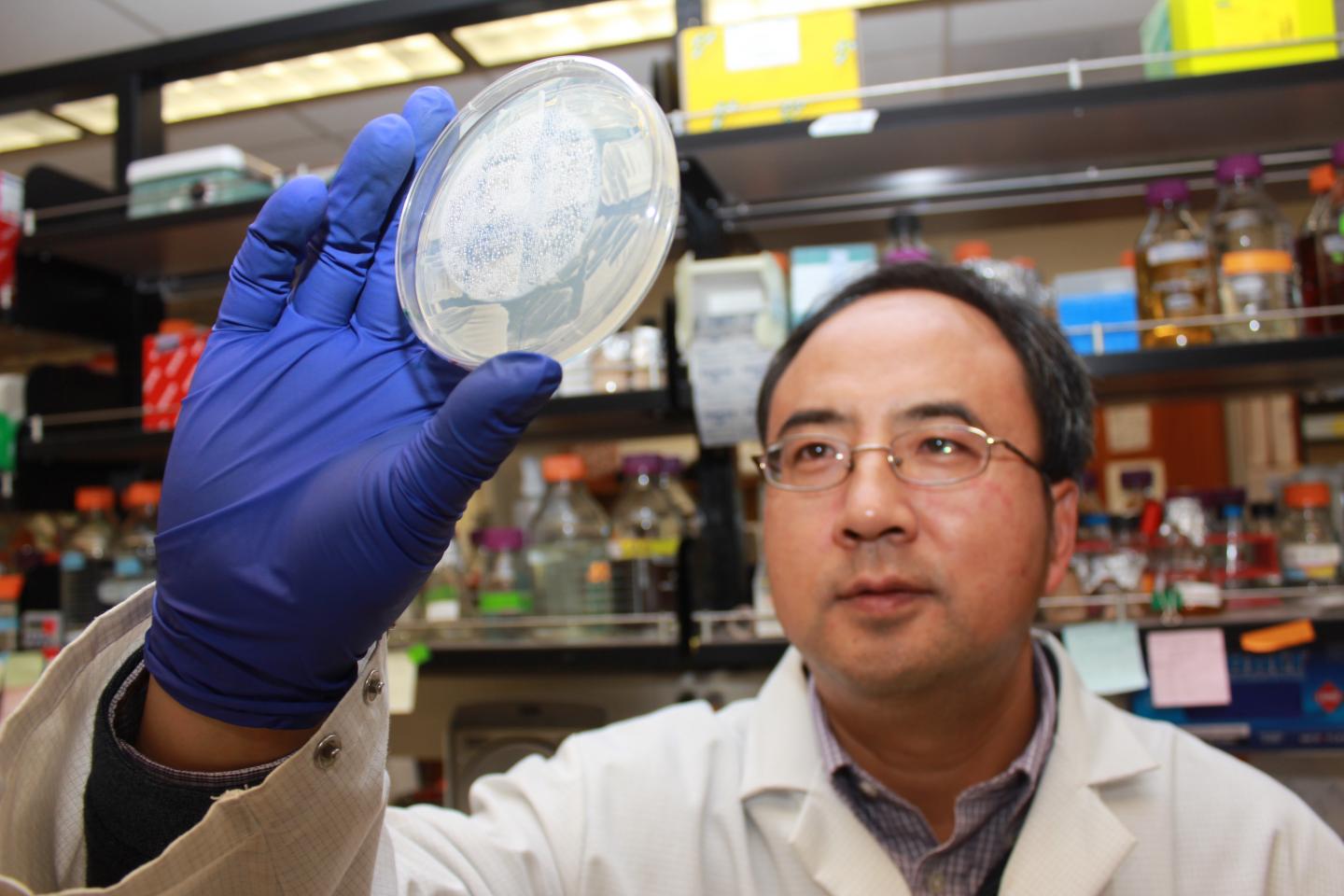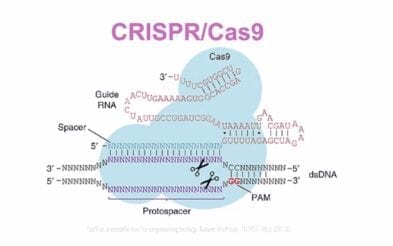
CREDIT
Virginia Tech
The discovery has broad ranging applications in stopping viral outbreaks such as hepatitis C in humans and a number of viruses in plants and animals
Viruses are molecular thieves that take from their hosts under the cloak of darkness. But now a Virginia Tech scientist has found a way to not only track viral hijackers, but also potentially stop them from replicating.
The discovery has broad ranging applications in stopping viral outbreaks such as Hepatitis C in humans and a number of viruses in plants and animals because it applies to many viruses in the largest category of viral classes — positive-strand RNA viruses.
The findings were recently published in the Proceedings of the National Academy of Sciences.
“Even though these viruses infect very different hosts, they all replicate similarly across the board, so what we learn from one virus can potentially be translated to control viruses in agricultural production as well as human health,” said Xiaofeng Wang, an assistant professor of plant pathology, physiology, and weed science in the College of Agriculture and Life Sciences.
Wang’s findings could target any number of plant viruses. One virus Wang has studied — the cucumber mosaic virus — affects pumpkin, squash and gourds in 1,200 species in over 100 plant families.
Sprays could be developed to halt the virus on plants, saving millions of dollars in agricultural sectors.
Wang, who is a Fralin Life Science-associated faculty member, used brome mosaic virus to study how viral infections start. He found that the brome mosaic virus stimulates synthesis of host lipid cells called phosphatidylcholine at the sites where viral replication occurs, and that by inhibiting its synthesis, the viral replication stopped.
Wang also collaborated with researchers to study how human viruses like Hepatitis C virus and poliovirus regulate host lipid synthesis and found that viral replication behaved in the same way as using plant viruses. The ramifications for human health mean that developing a drug delivery system to combat the Hepatitis C virus would be much more nimble in treating viral outbreaks than slow-moving vaccines, and could play a crucial role in halting the debilitating infection which affects 3.5 million people in the U.S. according to the Centers for Disease Control.
Viruses can’t replicate by themselves. They are essentially thieves that break into cells and multiply by hijacking the machinery of the host cells and proliferating and remodeling lipid-containing membranes such as phosphatidylcholine — one the most prominent lipids in host membranes. Wang and his collaborators were able to see where exactly the virus replications started and how they managed their hosts to meet their needs. Based on the finding of Wang and his collaborators, new ways can be developed to stop phosphatidylcholine synthesis for viral replication, but leave the host undamaged.
“The better we understand the mechanisms of a biological process, be it virus replication or cell division, the better are our options to rationally design tools that can control it,” said George Belov, a collaborator of Wang’s and an assistant professor of virology at the University of Maryland. “In the case of viral replication it may provide us with novel ways to control infection without causing host toxicity and a generation of viral-resistant mutants.”
Learn more: Scientists discover way to potentially track and stop human and agricultural viruses
The Latest on: Stopping virus replication
[google_news title=”” keyword=”stopping virus replication” num_posts=”10″ blurb_length=”0″ show_thumb=”left”]
via Google News
The Latest on: Stopping virus replication
- Hepatitis B Mechanisms Reveal Potential New Approaches to Therapieson May 8, 2024 at 5:00 pm
Tiny, dangerous, and easily transmitted, hepatitis B virus (HBV) chronically affects about 296 million ... which plays essential roles in HBV replication. A multipurpose molecule, its importance is ...
- Precore Mutant Chronic Hepatitis B -- Approach to Managementon May 5, 2024 at 5:00 pm
The diagnosis of precore mutant chronic hepatitis B (CHB) can be made with safety only by sequencing the precore region of the hepatitis B virus (HBV ... of HBV replication, which represents ...
- How the Flu Virus Invades the Brainon May 2, 2024 at 12:40 pm
Researchers uncovered how the influenza virus may infiltrate the brain, leading to a serious condition known as influenza-associated encephalopathy (IAE).
- Optimal timing maximises Paxlovid benefits for treating COVID-19on April 23, 2024 at 1:06 pm
Researchers have described the optimal timing for COVID-19 patients to take the antiviral, Paxlovid, to get the most benefit from the treatment, according to a study published April 16 in eLife.
- Key protein regulates immune response to viruses in mammal cellson April 17, 2024 at 5:00 pm
This protein interacts with a virus sensor protein early on in ... TRBP works on the cell by inducing cell death, stopping the viral replication entirely, in contrast to the interferon response ...
- How ORNL researchers aid in the discovery of new drugson April 14, 2024 at 6:19 pm
One finding was that “our molecules can get into the cells and have a therapeutic effect” of stopping the replication of the virus while also being sufficiently non-toxic. That was good news. An ...
- Inside the Coronaviruson February 3, 2024 at 9:56 am
Antiviral drugs generally stop a virus from attaching to ... many mutations could occur during replication that would cripple the virus, but SARS-CoV-2 can proofread and correct copies.
- Improving gut health may be key to preventing HIV progression: Studyon December 19, 2023 at 9:52 pm
The hallmark of HIV infection is the hijacking of immune cells called "helper T cells" to make copies of the virus. Scientists have focused on treatments that stop this replication process. However, ...
- Scientists discover new method Ebola virus uses to infect cellson December 18, 2023 at 9:39 am
Understanding how viruses travel once inside the human body is critical to develop effective drugs and therapies that can stop viruses ... particle infects a cell, replication begins, new virus ...
- How Viruses Hijack Endocytic Machineryon August 4, 2020 at 9:02 pm
So to speak, viruses are analogous to an enemy army that will not stop until it conquers the ... which are necessary for viral replication inside the cell. Some viruses also have a lipid envelope ...
via Bing News











